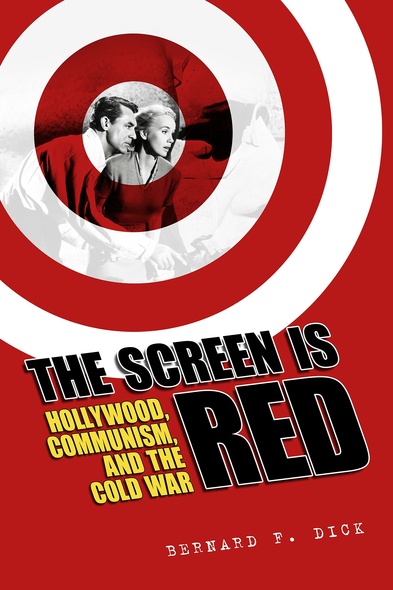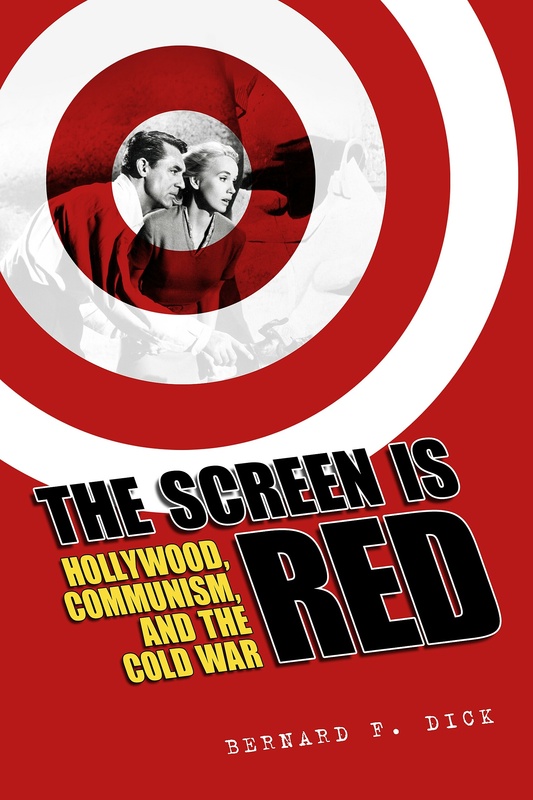
The Screen Is Red
Hollywood, Communism, and the Cold War
The Screen Is Red portrays Hollywood’s ambivalence toward the former Soviet Union before, during, and after the Cold War. In the 1930s, communism combated its alter ego, fascism, yet both threatened to undermine the capitalist system, the movie industry’s foundational core value. Hollywood portrayed fascism as the greater threat and communism as an aberration embraced by young idealists unaware of its dark side. In Ninotchka, all a female commissar needs is a trip to Paris to convert her to capitalism and the luxuries it can offer.
The scenario changed when Nazi Germany invaded the Soviet Union in 1941, making Russia a short-lived ally. The Soviets were quickly glorified in such films as Song of Russia, The North Star, Mission to Moscow, Days of Glory, and Counter-Attack. But once the Iron Curtain fell on Eastern Europe, the scenario changed again. America was now swarming with Soviet agents attempting to steal some crucial piece of microfilm. On screen, the atomic detonations in the Southwest produced mutations in ants, locusts, and spiders, and revived long-dead monsters from their watery tombs. The movies did not blame the atom bomb specifically but showed what horrors might result in addition to the iconic mushroom cloud.
Through the lens of Hollywood, a nuclear war might leave a handful of survivors (Five), none (On the Beach, Dr. Strangelove), or cities in ruins (Fail-Safe). Today the threat is no longer the Soviet Union, but international terrorism. Author Bernard F. Dick argues, however, that the Soviet Union has not lost its appeal, as evident from the popular and critically acclaimed television series The Americans. More than eighty years later, the screen is still red.
Dick’s latest is an extremely well-researched academic study of how the Cold War triggered a fear of communism that impacted Hollywood movies and led to the Hollywood blacklist. Although the title’s subject matter is fairly intense, the author’s knowledge makes it an interesting read. . . . An excellent book, with lots of fascinating historical information, this is recommended for Cold War scholars, film and popular culture students, and those interested in Hollywood and film history.
Bernard Dick’s The Screen Is Red is an important and valuable addition to an already crowded field. It stands out because of its erudition and its encyclopedic scope. It is also beautifully contextualized, immensely readable, and judicious in its analyses.
A superbly rendered account of a time in American history all too reminiscent of the toxic rhetoric so much in the air today. Drawing on philosophy, literary theory, and a comprehensive knowledge of cinema, Bernard Dick provides a vivid, crystal-clear report of media and society always in partnership and at bay.
Bernard F. Dick is professor of communication and English at Fairleigh Dickinson University and is author of many books, including The Musicals of Cole Porter: Broadway, Hollywood, Television; The Golden Age Musicals of Darryl F. Zanuck: The Gentleman Preferred Blondes; That Was Entertainment: The Golden Age of the MGM Musical; The President’s Ladies: Jane Wyman and Nancy Davis; Hollywood Madonna: Loretta Young; Forever Mame: The Life of Rosalind Russell; and Claudette Colbert: She Walked in Beauty, all published by University Press of Mississippi.





